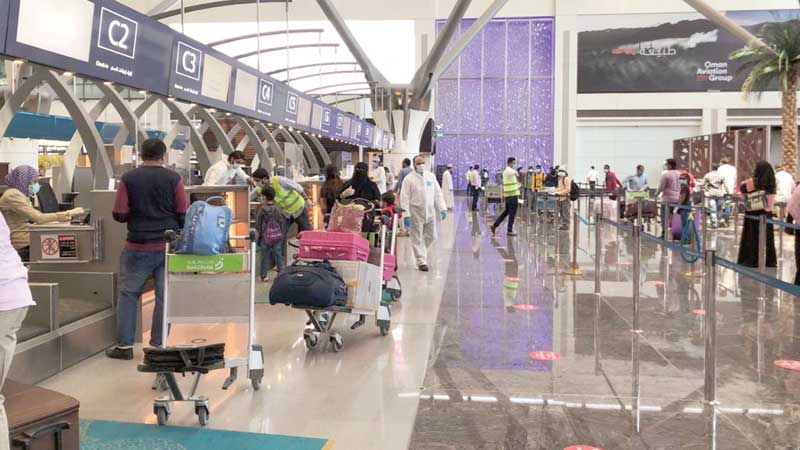

Even as the Omani government has announced the waiver of all fees and fines to facilitate the exit of those stranded expat workers from the country, their travel back home has been hit by spiraling air fares.
While travel agents claim that the ‘unexpected’ increase resulted from less number of flights to different destinations in the South Asian countries, workers who are availing the ‘exit scheme’ lament that the current fares have imperiled their return travel.
“Even though I have applied for the necessary documents from the embassy, my travel is becoming uncertain due to the high air fare to my hometown,” said Shiv Kumar, who lost his job following the closure of his company.
As he has to find money for tickets for his family of four including two children, he fears whether he would be able to use the facility announced by the Omani government.
The Ministry of Labour has announced the exit scheme for those who have been staying in the Sultanate without valid documents and want to leave for their home countries permanently by year end.
While Shiv Kumar is one among many left in the lurch with uncertainty clouding their travel due to the high fares, travel agents do not find any reprieve coming soon.
The fares, they point out, started rising after the curbs on private airlines following the air bubble agreement between the two countries extended to December 27 and cut in the number of passengers to half.
“Most of the destinations carry higher than usual fare mainly because of less number of flights operating to various destinations, and under air bubble agreement. Once normal schedules are restored then you would have better air fares,” said Sunil D’Souza, CEO, TravelPoint.
Even though normal schedules were disrupted due to COVID-19 pandemic, expats could fly to their respective destinations through repatriation flights operated by the government or charter flights hired by private companies and social service agencies. This was further aided by the bubble agreement by the two countries.
But Sunil expects that the situation will return to the normal from January with more airlines operating in different sectors providing relief to travellers.
“Fares to Indian cities of Kochi, Delhi, Hyderabad and Mumbai are high because of bubble and limited flights. Similarly, fares to Dhaka are also high due to the bubble agreement and increase in the number of people going to the country using the exit scheme,” he said.
In the second week of November, the number of seats available on flights under a bubble agreement with India was cut by half after some passengers tested positive for coronavirus on arrival in Muscat.
Currently only national airlines Oman Air, SalamAir, Air India and Air India Express are allowed to operate.
Ticket rates were much lower when private airlines like IndiGo and GoAir were operating in October to some of the destinations in India.
SAMUEL KUTTY
@samkuttyvp
Oman Observer is now on the WhatsApp channel. Click here



